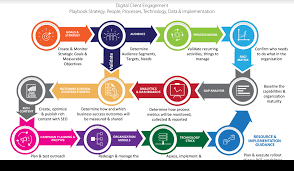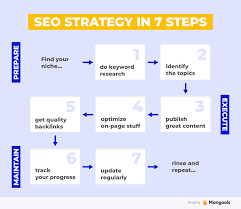Customer engagement is a critical component of any successful business. It refers to the interactions between a company and its customers, which can include everything from customer service to marketing campaigns. Engaging with customers can help build brand loyalty, increase sales, and improve overall customer satisfaction.
One of the most important aspects of customer engagement is communication. Customers want to feel heard and understood, and they expect companies to be responsive to their needs. This means that businesses must be proactive in reaching out to customers and providing them with the information they need.
Social media has become an increasingly important tool for customer engagement in recent years. Platforms like Twitter, Facebook, and Instagram provide businesses with a direct line of communication to their customers, allowing them to respond quickly to questions or concerns. Social media also provides opportunities for businesses to promote their products or services in a more casual and conversational way.
Another key aspect of customer engagement is personalization. Customers want to feel like they are more than just a number, so businesses must make an effort to tailor their interactions with each individual customer. This can include personalized emails, targeted marketing campaigns based on past purchases or browsing history, or even customized product recommendations.
In addition to communication and personalization, businesses must also focus on creating positive experiences for their customers. This means providing excellent customer service at every touchpoint, from the initial purchase through post-sales support. It also means being transparent about policies and procedures so that customers feel confident in their interactions with the company.
Ultimately, customer engagement is about building relationships with your customers that go beyond just making a sale. By engaging with your customers in meaningful ways, you can create loyal brand advocates who will not only continue to do business with you but also recommend your products or services to others.
In conclusion, customer engagement is essential for any business looking to succeed in today’s competitive marketplace. By focusing on communication, personalization, positive experiences, and building relationships with your customers, you can create a loyal customer base that will help drive your business forward.
6 Tips for Effective Customer Engagement: From Clear Goals to Measuring Success
- Start with a clear goal in mind
- Listen and respond
- Personalize the experience
- Provide value
- Show appreciation
- Measure success
Start with a clear goal in mind
When it comes to customer engagement, starting with a clear goal in mind is essential. Without a clear objective, your efforts to engage with customers may be scattered and ineffective.
A clear goal can help you focus your efforts and ensure that you are making progress towards achieving your desired outcome. For example, if your goal is to increase sales, you may focus on developing targeted marketing campaigns or improving the customer experience on your website.
Starting with a clear goal can also help you measure the success of your customer engagement efforts. By setting specific metrics and tracking your progress over time, you can determine whether or not you are making progress towards achieving your goal.
It’s important to keep in mind that different goals may require different approaches to customer engagement. For example, if your goal is to improve customer satisfaction, you may need to focus more on providing excellent customer service and responding quickly to customer inquiries.
In addition, it’s important to ensure that your goals align with the needs and preferences of your target audience. By understanding what motivates and interests them, you can tailor your customer engagement efforts to better meet their needs.
In conclusion, starting with a clear goal in mind is an essential tip for effective customer engagement. By setting specific objectives and tailoring your approach based on the needs of your target audience, you can build stronger relationships with customers and achieve better business outcomes.
Listen and respond
One of the most important tips for effective customer engagement is to listen and respond to your customers. This means actively seeking out feedback from your customers and responding in a timely and meaningful way.
Listening to your customers can help you better understand their needs, preferences, and pain points. It can also provide valuable insights into how you can improve your products or services. Whether it’s through social media, email, or surveys, there are many ways to gather feedback from your customers.
Once you’ve gathered feedback, it’s important to respond in a way that shows you value their input. This means acknowledging their concerns or suggestions and providing a clear plan for how you will address them. It’s also important to follow up with customers after any changes have been made to show that you took their feedback seriously.
By listening and responding to your customers, you can build trust and loyalty with them over time. Customers want to feel heard and valued, so taking the time to engage with them in this way can go a long way towards building strong relationships.
In conclusion, listening and responding is a crucial aspect of effective customer engagement. By actively seeking out feedback from your customers and responding in a meaningful way, you can build trust and loyalty with them over time. This can ultimately lead to increased sales, positive word-of-mouth referrals, and long-term success for your business.
Personalize the experience
Personalizing the customer experience is a powerful way to engage with your customers and build long-lasting relationships. By tailoring your interactions with each individual customer, you can create a more meaningful and memorable experience that will leave a lasting impression.
Personalization can take many forms, from customized product recommendations based on past purchases to personalized emails that address the customer by name. It can also include personalized marketing campaigns that target specific segments of your customer base based on their preferences or behavior.
One effective way to personalize the customer experience is through data collection and analysis. By collecting data on your customers’ preferences, behavior, and purchase history, you can gain valuable insights into what they are looking for and how best to engage with them. This information can then be used to create personalized experiences that are tailored to each individual customer.
Another way to personalize the customer experience is through excellent customer service. By providing personalized support and assistance, you can show your customers that you care about their needs and are willing to go above and beyond to help them. This can include offering personalized recommendations or solutions based on their specific situation or needs.
Ultimately, personalizing the customer experience is about creating a more human connection between your business and your customers. By treating each customer as an individual rather than just another number, you can build trust and loyalty that will keep them coming back for more.
In conclusion, personalizing the customer experience is an essential component of successful customer engagement. By using data analysis, targeted marketing campaigns, excellent customer service, and other strategies, businesses can create meaningful interactions with their customers that will help build long-lasting relationships.
Provide value
One of the most effective ways to engage with customers is to provide them with value. Customers are always looking for products or services that will make their lives easier, save them time, or provide a solution to a problem they are facing. By providing value to your customers, you can build trust and loyalty, which can lead to increased sales and revenue.
There are many ways to provide value to your customers. One approach is to offer educational content that helps them learn more about your industry or product. For example, if you sell nutritional supplements, you could create a blog post or video that explains the benefits of different vitamins and minerals.
Another way to provide value is by offering discounts or promotions. Customers love getting a good deal, so offering a discount on their next purchase or a free item with their order can be an effective way to keep them coming back.
Providing excellent customer service is another way to provide value. When customers have questions or concerns, they want quick and helpful responses. By providing prompt and courteous customer service, you can show your customers that you value their business and are committed to helping them.
Finally, make sure your product or service itself provides value. If your product doesn’t live up to its promises, no amount of marketing or customer engagement will be able to make up for it. Make sure your product solves a problem for your customers and provides real benefits.
In conclusion, providing value is essential for effective customer engagement. By offering educational content, discounts and promotions, excellent customer service, and products that solve problems for your customers, you can build trust and loyalty that will help grow your business over time.
Show appreciation
Showing appreciation is a simple yet powerful way to engage with your customers and build long-lasting relationships. When customers feel appreciated, they are more likely to continue doing business with you and recommend your products or services to others.
There are many ways to show appreciation for your customers. One of the most effective ways is to say thank you. This can be done through a personalized email, a handwritten note, or even a phone call. Customers will appreciate the effort you put into thanking them for their business and will be more likely to remember you in the future.
Another way to show appreciation is by offering special promotions or discounts. This not only shows that you value your customers but also provides an incentive for them to continue doing business with you. For example, you could offer a discount code for their next purchase or provide free shipping on their current order.
It’s also important to listen to your customers and take their feedback into consideration. When customers feel like their opinions matter, they are more likely to feel appreciated and valued. You can solicit feedback through surveys, social media polls, or by simply asking for their opinion during interactions.
Finally, don’t forget the power of a simple smile or friendly greeting. Even small gestures can go a long way in showing customers that you appreciate their business.
In conclusion, showing appreciation is an easy and effective way to engage with your customers and build strong relationships. By saying thank you, offering promotions, listening to feedback, and providing friendly interactions, you can create loyal brand advocates who will continue doing business with you for years to come.
Measure success
When it comes to customer engagement, one of the most important tips is to measure success. Without measuring your efforts, you won’t know if your engagement strategies are working or if they need improvement. Measuring success allows you to track progress, identify areas for improvement, and make data-driven decisions.
There are several metrics you can use to measure the success of your customer engagement efforts. One common metric is customer satisfaction, which can be measured through surveys or feedback forms. Another metric is customer retention rate, which measures how many customers continue to do business with you over time.
Social media metrics can also be useful for measuring customer engagement. For example, likes, shares, and comments on social media posts can indicate how engaged your followers are with your brand. You can also track website traffic and conversion rates to see how effective your online engagement strategies are.
It’s important to set specific goals for each metric you choose to measure so that you have a benchmark for success. Make sure to regularly analyze the data and adjust your strategies as needed based on the results.
Measuring success not only helps you improve your customer engagement efforts but also demonstrates the value of these efforts to stakeholders within your organization. By showing that engagement strategies lead to tangible results such as increased sales or customer loyalty, you can secure buy-in from decision-makers and allocate resources accordingly.
In conclusion, measuring success is a crucial step in any effective customer engagement strategy. By tracking metrics such as customer satisfaction, retention rate, social media engagement, website traffic and conversion rates, you can gain insights into what’s working and what’s not and make data-driven decisions that will improve overall performance.




